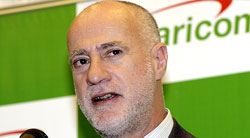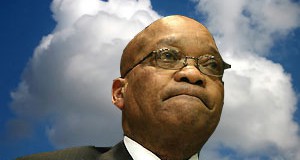Mr. Joseph started the Kenyan operations of the company from scratch with about kshs.2 billion (30 million dollars) in start up capital that he was offered by the two main shareholders at the time; the Kenyan government through Telkom Kenya and Vodafone. With such an amount, he was expected to roll out services that would attract subscribers to the network. Needless to say, he did just that. The company’s current market capitalization is about 3 billion dollars.
With an engineering background, he relied mostly on simple marketing techniques that resonated well with the Kenyan public. For instance, he chose the color green for its logo which is associated with bountiful harvest. In contrast,Kencell(now Zain),its main competitor at the time, chose the color pink.So,from the very beginning, the company sought to connect emotionally to its customers.However,the killer strategy that the company had at the time was to resort to per second billing while its competitor resorted to a per minute billing. This saw the company’s numbers skyrocket from a mere 16,000 in 2000 to the current 15 million subscribers. The profits of the company have also grown in leaps and bounds reaching the current profits of kshs.20 billion (300 million dollars) during the last financial year. The market share of the company has also risen to its current level of 80%.
However, such success has attracted praise and condemnation in equal measure. There are now more players in the field. The competitors; zain, orange and yu have continually sought to cut the market share of the company. The former CEO commented that the market share of the company can only go down. The phone operators have now resorted to value addition services such as data in order to grow their profit margins as the price wars on calling rates is unsustainable.
Almost all the successes at the company are attributable to the former CEO.The question on most people’s mind is whether the new CEO will match or even surpass these achievements. Succession is a thorny issue in many companies. In deed, even global companies such as Dell have had to recall their former CEOs after their company’s began faltering. One only hopes that such a scene will not happen to safaricom.The issue also raises the issue of the role of the iconic CEO in companies. While there has been a general trend in business academia and management thinkers to rail in on the iconic CEO, others say that in deed great companies are run by great individuals and there can be no two ways about it.
 PalavaHut | Online African Village News, Views and Interviews from the African Diasporas
PalavaHut | Online African Village News, Views and Interviews from the African Diasporas




